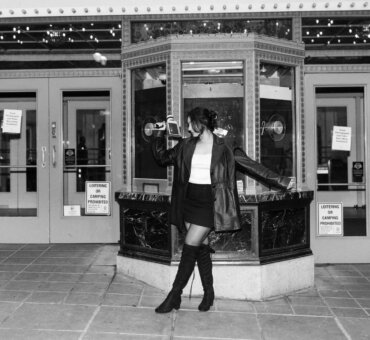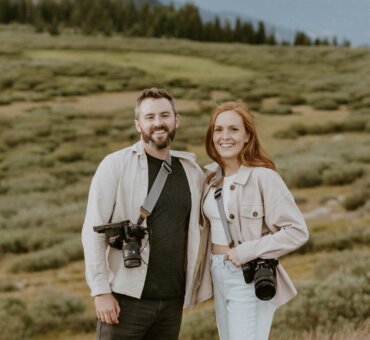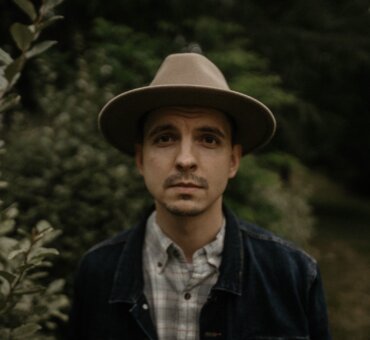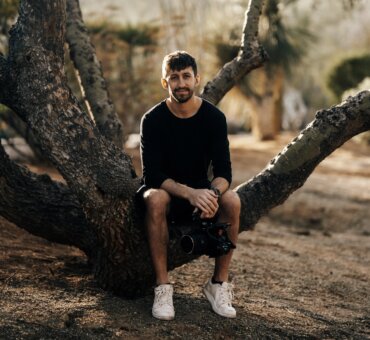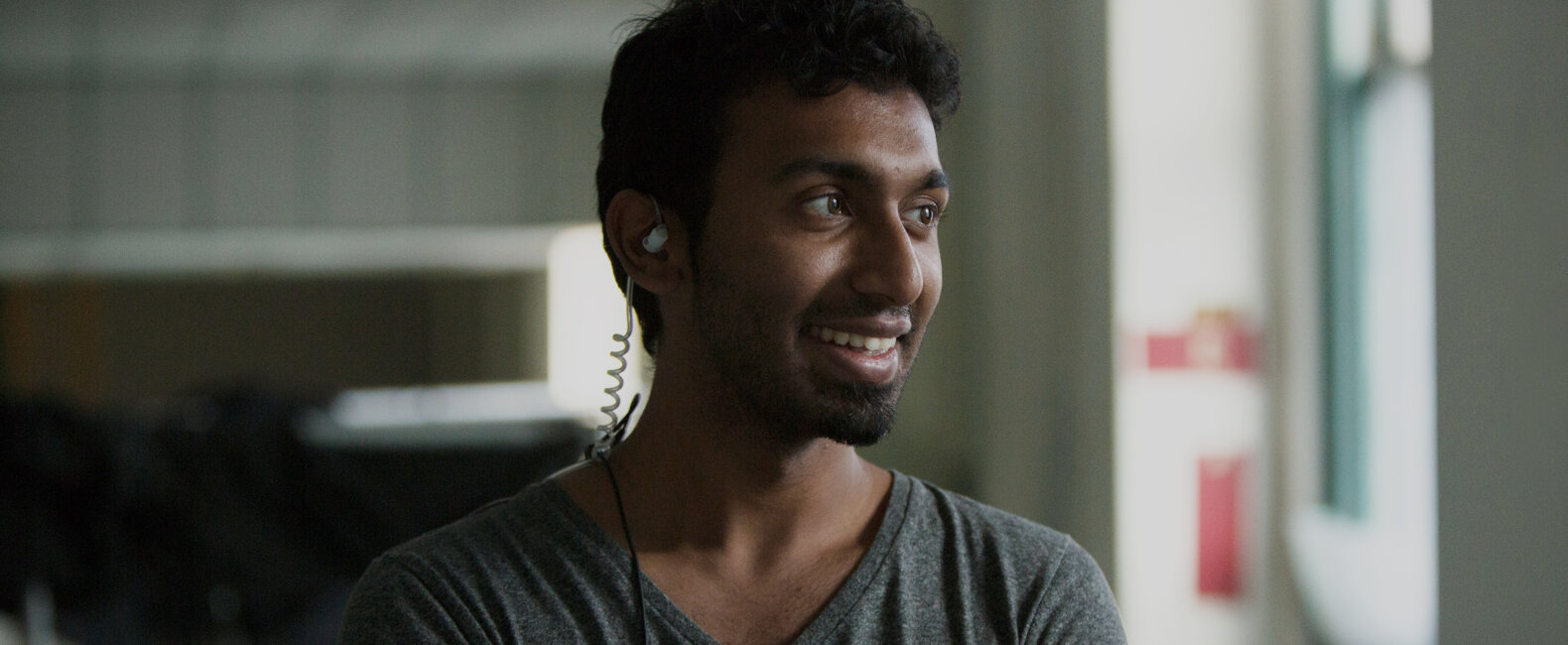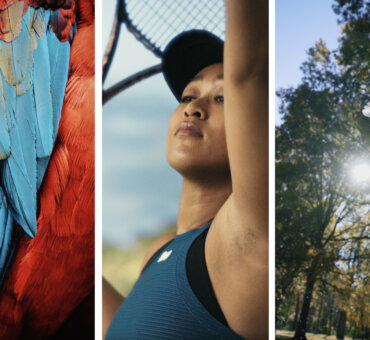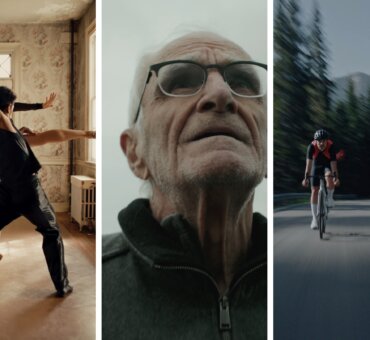It takes a lot of people to make a film, but only a handful of them get much credit. Director. Cinematographer. Editor, if he’s lucky. The end credits go on and on, but few people understand what all of these people even do. For example: the producer. It’s a nebulous, seemingly catchall term for someone who does the nitty-gritty work of putting a production together. But while the title might be ambiguous, it requires a very specific type of person. A mix of optimist and realist. A relentless self-starter. A serial entrepreneur. A person like Jens Jacob.
After starting his career as a PA on a number of high-profile music video productions, Jens quickly began producing everything from narratives to documentaries to commercials. His wide range of experience has given him a unique perspective not just on the film industry as a whole, but also on the role of a producer in particular. We think you’ll like what he has to say.

Musicbed: How did you end up in film?
Jens Jacob: Well, the funny thing is I wasn’t allowed to watch films as a kid. I grew up in a very conservative household, so I didn’t see my first film until I was 12. But when I saw it, I couldn’t believe somebody had made this thing. Someone had created this world and these characters. So I got a digital camera and started dabbling. I’d cut these films together and premiere them for my family. One time my cousin saw one and said, “Whoa, you should do this for a living.” I’d never grasped the idea that this was something you could do. There’s this quote out there: “The two greatest days in your life are the day you’re born and the day you find out why.” That’s the seed that was planted when my cousin said, “Hey, you could do this.” Years later, his suggestion led to me pack my bags and move to Los Angeles.
Initially my dream was to be a cinematographer. But I remember the first time I saw what a cinematographer does. It was on the set of a big production music video, and I realized the amount of intellect someone needs for that. Technologically, creatively, managerially. It overwhelmed me. I thought, Well, never mind.
But it was on that project that I met a producer who kind of took me under her wing. I saw what she was doing and it inspired me. I thought, Oh, okay, I want to know more about what you do. Because back then I had no idea what a producer did. I think everyone has a vague idea. But I started learning from her. I started interning and then coordinating a few things, and within a year I was producing. That’s how all of this got started.
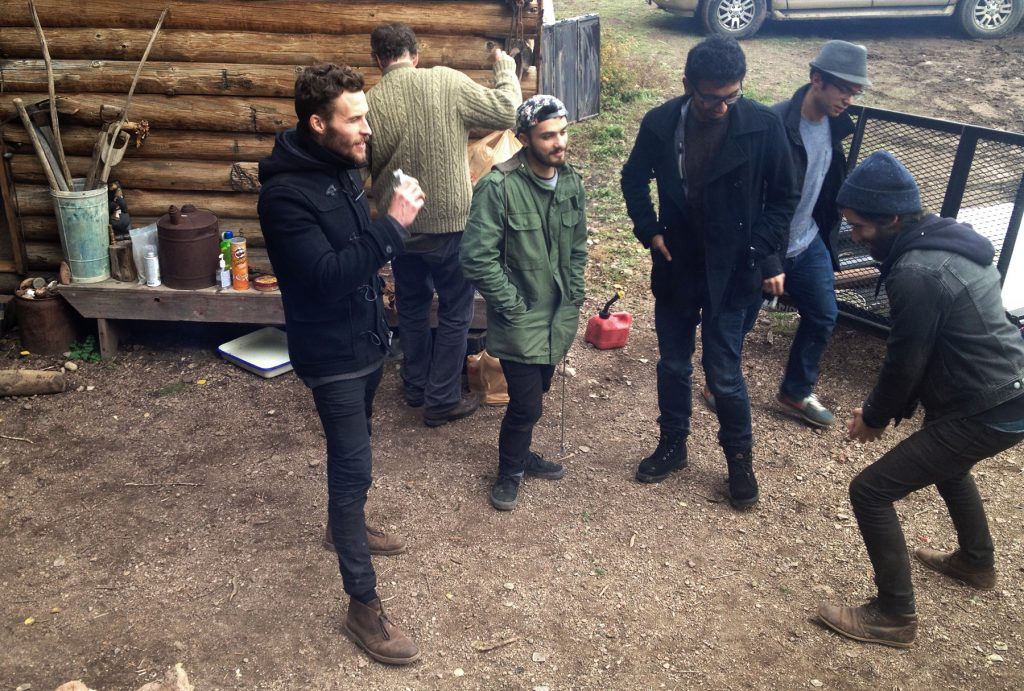
I want to be there with my team instead of just telling them what to do. That forever changed the way I see leadership.
What about her inspired you?
I remember this very specific thing that happened on the set of our second music video together, and it changed everything for me. It was Nicki Minaj’s Super Bass video, and I was a PA on that project. You wouldn’t know it by watching the video, but there was this one pool scene where the pool was filled with pink liquid. And the pool started leaking. We were on a sound stage, and hundreds of gallons of pink water started going everywhere. We were literally throwing gear to the other side of the room. NCIS was filming next door, and I think it even leaked onto their sound stage as well. I’ve never seen anything like it. And to make matters worse, this particular scene was supposed to be happening on another planet where it was snowing. So there were all of these white snowflakes everywhere, which, when they touched the water, magically turned into glue. Now there’s sticky glue water all over the floor, and you can’t mop it up — you have to scrape it. So of course the PAs were cleaning it up, taking shovels to the floor in the middle of the night. But this one producer I’ve been talking about, Kimberly Stuckwisch, she grabbed a shovel and was scraping right along with us. I was like, What is she doing? She’s a producer; she doesn’t have to do this. Ever since that day, I wanted to be like her. I want to be there with my team instead of just telling them what to do. That forever changed the way I see leadership.
Did your idea of a producer change as you started doing the job?
Absolutely. I remember meeting with a producer early on. He was the producer of that first music video I worked on. We had coffee afterward, and I asked him, “What is a producer?” I hadn’t gone to film school. I didn’t have “proper training.” So I asked this guy what a producer was, and his answer stuck with me. He said a producer is like a wedding planner. I don’t know why that stuck with me because I’m not married, but I guess it just made sense. Someone has a vision and you’re going to make it happen.
My mantra has become, “You never know what you can achieve or get until you ask.” One of the most important things to learn is not to be afraid to ask for things. For some reason people seem to be afraid to do this. But getting over the fear of asking has made all the difference. You’d be surprised what people are willing to give you. Nobody is going to knock on your door and say, “Here, I’ve got this. You can use it.” You have to go out there and find it yourself. You have to be creative. There’s such a thing as producing creatively. Most people think the creative aspect of a film is the script or the cinematography or whatever. But I find myself having to be very creative just in terms of how we’re going to achieve whatever this is. Filmmaking is always this mix of art and business. Filmmakers come to you with these visions, and you have to figure it out. It’s this constant back and forth.
I approach productions as if they are a small business. Each production is its own corporation. You have to find the money, you have to make a product, and then you market and sell the product. You have to build teams and execute ideas. I treat every production that way.
Do producers need to be inherently optimistic? Or are the filmmakers the optimists and the producers are the realists? How does it work?
I think it’s both. It depends on who I’m talking to. I feel like the parent on set. I joke that I’m the mother. But ultimately you’re the one taking care of people and telling them that broccoli is good for them even though they hate it. I have to consider myself a realist when it comes to approach. You have to make sure you create the whole thing with the resources you have. So I have to be a realist when I’m talking with directors, but I also have to be an optimist when I’m talking to investors or members of the crew. It’s a constant struggle to be positive and supportive while also protecting people from themselves.

What makes a good producer?
I believe proper communication is a big thing. Being clear and supportive at the same time. Communication impacts all aspects of filmmaking. The best directors I’ve worked with aren’t necessarily the most creative. They’re the ones who are able to communicate their vision on set the best.
As the producer, what part of a project are you the most proud of?
I’ll tell you the thing that brings me the most joy. I think a lot of young filmmakers have it in their heads that, Well, if it looks great in the end, the process doesn’t really matter. But I believe what happens on set is just as important. When I’m producing something, the thing I’m most proud of is what people have to say about my crew — what type of people they are, how they interact with others. We were in Chicago last week, and somebody sent me a note that said, “Your crew really reflects the project.” I was just like, Wow. You never think about those things. But for me, it’s about assembling a team where everyone respects each other, and everyone is reflecting the project. That’s what means the most to me. The biggest, most important thing in filmmaking is the relationships. The community you build. I’d be nothing if weren’t for my relationships.
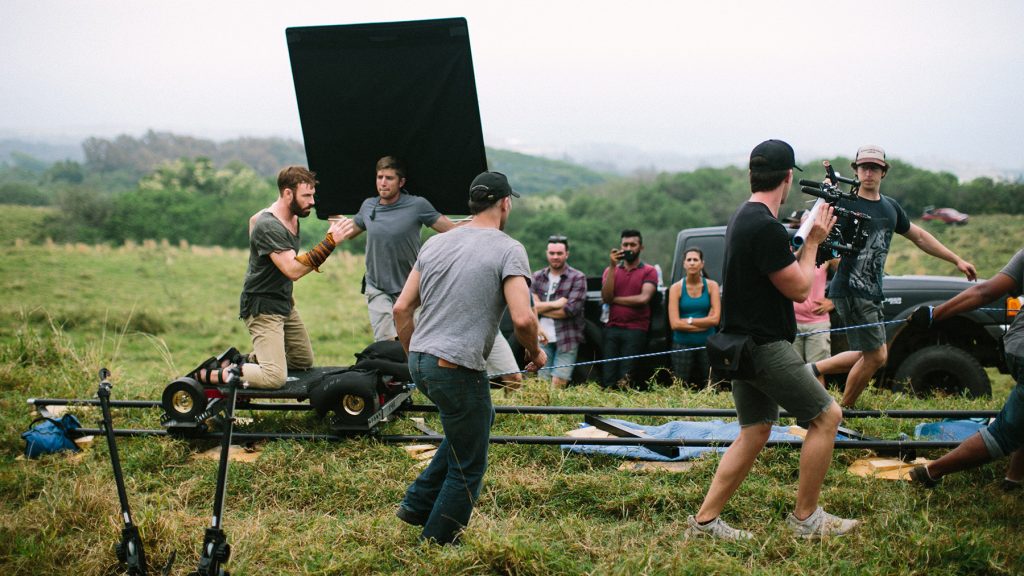
Filmmaking is always this mix of art and business. Filmmakers come to you with these visions, and you have to figure it out.
What’s the best advice you’ve been given?
An executive producer once told me, “Fake it until you make it.” I thought it was such an ugly thing for someone to say. But then he explained it to me, and I loved the explanation. He said, “If you’re ever going to grow or get to the next stage of your life or project, you’re not going to fully know what you’re getting into. So here’s what you need to know. You need to know about 60 percent. You need to know in your heart that you know about 60 percent of what you’re doing. The other 30 percent to 40 percent you’ll figure out on the way. Have the confidence that you’ll figure it out.” That really resonated with me because most of the time I have no idea what I’m doing. So much of it comes down to confidence.
It takes confidence and work. A lot of people when they’re starting out think that just because they don’t have resources, they can’t go and create. They’re always asking me how I got involved with the projects I’ve been involved with. Well, look, nobody asked me. You have to be a self-starter. You have to go out and create for yourself. Don’t be afraid to go do. Don’t be afraid to ask for things. You need practice. A lot of people sit behind a computer and read and learn, but they are hesitant to go do something. What got me started as a producer is I went and did something. Don’t wait for someone to approach you. Go out and create.
Oh, also, go create with people who are on your level. People you can grow with. Don’t try to find someone 10 times better than you. Work with people you can make mistakes with. But the important thing is the work.
I believe the idea of talent is demotivating — thinking some filmmakers are just talented and you’ll never be as good them. But from what I’ve seen, the people making the best work are the ones who are working the hardest. I’ve seen supposedly “talentless” people work hard and achieve great things. And vice versa. Some of the people you might assume are “talented” — you should see how much work they’re putting in. They don’t sleep. They are constantly pushing themselves. A lot of people are willing to take a project to 90 percent and feel comfortable with what they have. And then there are the few who put in the extra hours and the extra effort, and they take it all the way. That’s what makes all the difference. I’ve seen it time and time again. Put in the hours.
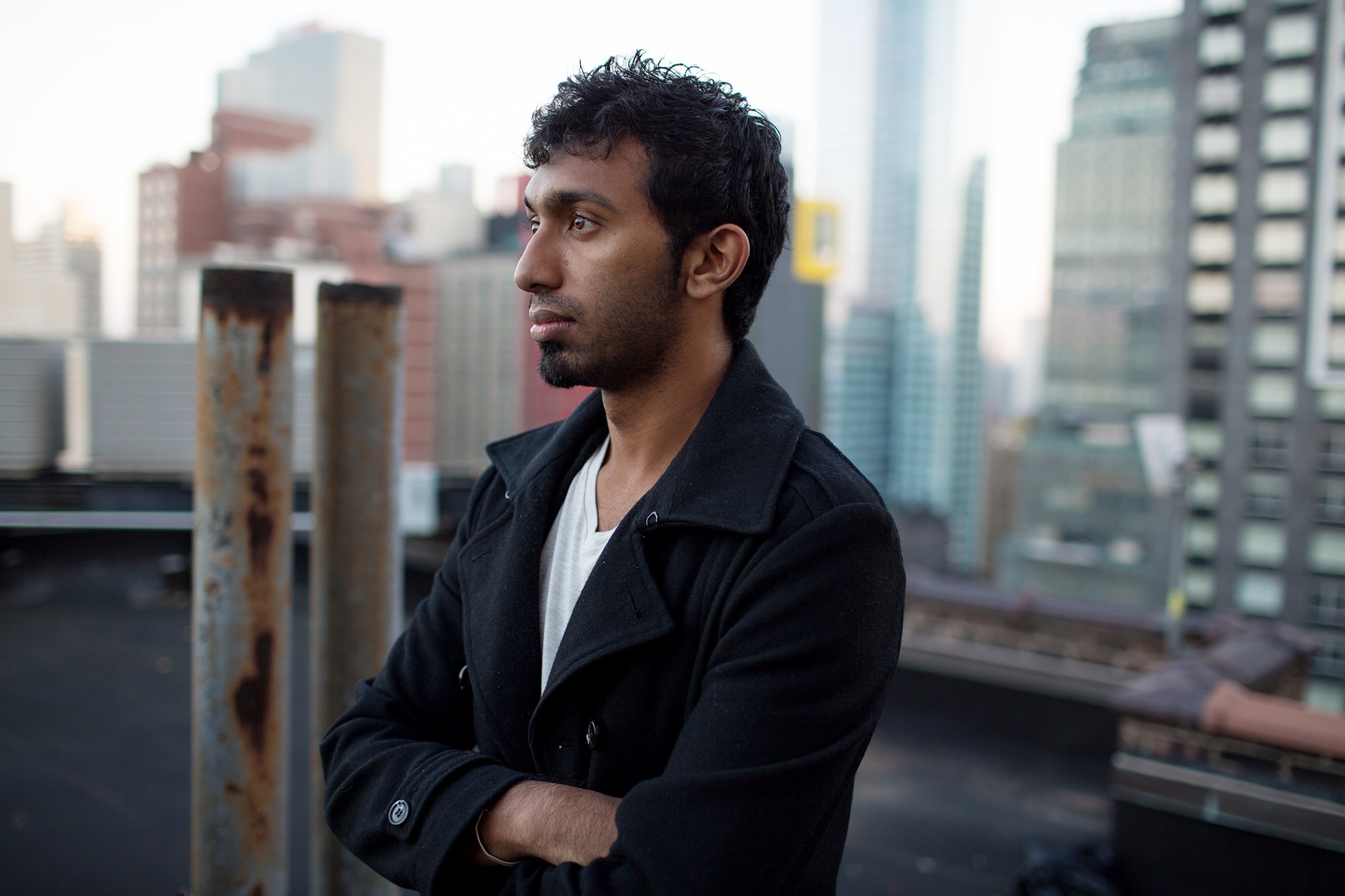
You heard the man. Doing great work is about doing work, period. Talent is the great myth. Often irrelevant. Find the project you want to commit yourself to and commit. You’ll surprise yourself.




































































